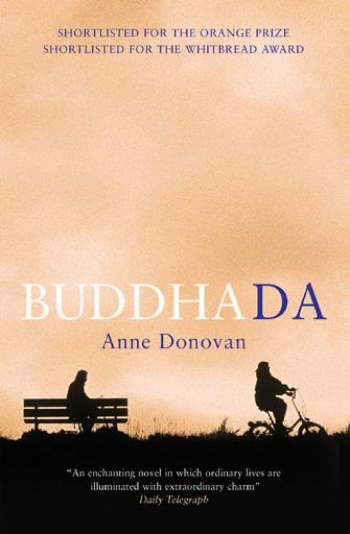Buddha Da was published in 2003 and was the first novel by Scottish Author Anne Donovan. It was shortlisted for the 2003 Orange Prize and the 2003 Whitbread Book Award.
"When you dae sumpn and then sumpn else happens - it's meant tae be."
This is the Buddhist concept of karma as explained by Jimmy, a man from Glasgow who has recently turned Buddhist. Or, if this version isn't Glaswegian enough for you, we also have Jimmy's mother's saying: 'whit's fur you'll no go by you'.
If you are now expecting a translation, you're in for a disappointment. The novel was written by a Glaswegian in her words, and unless you are familiar with Scots you will struggle a little at first. But don't let this put you are off, because within a few pages a whole world will open itself up to you, and the lives of characters who may come from a country quite different to yours will become a tangible reality. Indeed, give it a little time and you will suddenly find that you too can speak Scotts.
A great way of sampling the novel would be to pick one of the chapters at the beginning of the book and read it all the way through. Indeed, although the story has a linear plot, each chapter stands perfectly well on its own. This is perhaps not so surprising given that the author had previously specialized in short story fiction. In fact, Buddha Da was initially meant to be a short story written from the point of view of twelve year old Anne Marie. Yet what started out as a young girl's account quickly turned into a novel narrated by all three members of the family, with the focal point being Jimmy's new involvement with Buddhism and the effect this has on each character.
In an online interview for Barcelona Review, Donovan explains that she had no intention of writing about Buddhism or meditation – it simply happened. The first paragraph of the novel starts with Anne Marie saying that her da will do anything for a laugh, even walking to the shops with a pair of knickers on his head. But, she says, that's nothing compared to what he's done now: 'He's turned intae a Buddhist'. And from this simple line, a whole story unfolds that intertwines Buddhist concepts of inner purity, impermanence and compassion.
















